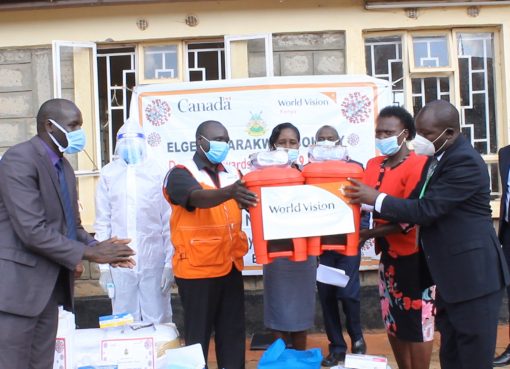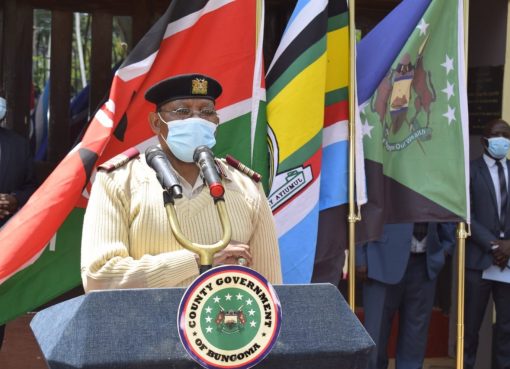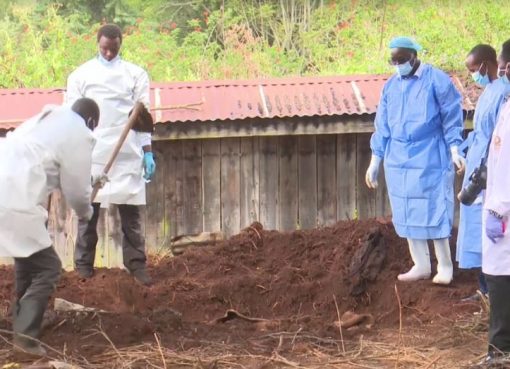The government has put in place a National Information System to capture sexual and gender based violence data in various government sectors as a means to end violence against women in society.
The Cabinet Secretary Ministry of Public Service, Youth and Gender (CS), Prof. Margaret Kobia said the information systems are domiciled in the sectors of health, the national police service, Office of the Director of Public Prosecution (ODPP) and Judiciary.
Prof. Kobia said in an effort to end the vice the government has also developed robust policies and laws that seek to prevent and respond to gender based violence, and sexual offences, adding that a special unit has also been established at the office of the Director of Public Prosecution to handle female genital mutilation and other gender based violence related cases.
“Kenya has also developed critical policies and legislations to promote, enforce and monitor equality and non-discrimination, as we continue to make significant improvements in the economic status of women,” she added.
Prof. Kobia was speaking on Thursday during the 12th Commonwealth Women’s Affairs Ministers Meeting held in Nairobi that was attended by the Secretary- General, Commonwealth Patricia Scotland, Her Royal Highness, Countess of Wessex Sophie Rhys-Jones, Cabinet Secretaries, Amb. Amina Mohammed and Rachel Omamo among other dignitaries.
She said the two-day forum provides a platform for cross learning among commonwealth countries by showcasing best practices and innovative programmes and approaches that empower women and accelerate achievement of gender equality.
This is the second time Kenya is hosting the meeting; it hosted the first meeting in Nairobi in 1985, during the United Nations Third World Conference on Women.
Prof. Kobia said Kenya subscribes to target 5.6 of the goal 5 of the 2030 Agenda that aims to ensure universal access to sexual and reproductive health and reproductive rights in accordance with the programme of Action of the International Conference on Population and Development.
“We recognize that harnessing the demographic dividend requires not only the availability of education and training but also opportunities for decent work for young people, availability of family planning as well as policies and programmes for gender equality and the empowerment of women and girls.
The CS noted that the commonwealth priorities which include women in leadership, women’s economic empowerment, ending violence against women and girls, gender and climate change are important as they are aligned to the Vision 2030 Agenda and the Sustainable Development Goals at national, regional and global level.
“These global human rights frameworks serve as vital enablers for the realization of gender equality and the empowerment of women,” said the CS.
She at the same time announced that the country has undertaken comprehensive national review on the Bejing Declaration and prepared a report that captures the status of Kenya in advancing gender equality and empowerment of women and girls.
Prof. Kobia thanked the government through the leadership of President Uhuru Kenyatta for allocating the necessary resources for the success of the 12th Commonwealth Meeting, which she said demonstrated the country’s commitment in addressing matters related to equality and women’s empowerment.
“The government has been empowering women and youth through the Women enterprise fund, Youth enterprise fund, Uwezo fund and the National Government Affirmative Action Fund,” she said.
In her remarks, Commonwealth Secretary General, Scotland said it is impressive that majority of commonwealth countries have put in place national gender policies which commit governments to advance the rights of women and girls including those of men and boys who are disadvantaged.
“All our countries now have national women’s machineries, responsible for representing and promoting the interests of women and girls in the national policy planning and implementation,” she stated.
She said it is also encouraging to note that Commonwealth member countries have largely achieved gender parity in schooling for girls and boys in both primary and secondary education, and emphasized that more effort is required to increase women and girls’ entries into adult and tertiary education.
Scotland announced that 13 Commonwealth members have achieved the global target for 30 percent of parliamentary membership to be women with Rwanda leading globally.
“The Commonwealth average for members of parliament who are women stands at 23 percent, still short of that global target of 30 percent, and of the 35 percent women who are presiding officers or speakers in 185 representative bodies, 12 are from Commonwealth countries,” she added.
She singled out domestic violence, violence against women and girls, threat to climate change, trade and good governance, health, well-being and human rights of every individual as the priorities Commonwealth intends to address in a bid to empower the disadvantaged citizens.
Her Royal Highness, Countess of Wessex, Sophie in her speech said there is need for women globally to have an increased focus on ending gender inequality and discrimination and focus on building environments that enable women’s political participation and economic empowerment.
“I am also urging greater support for all survivors of conflict related sexual violence, both male and female, and for the many children born of rape,” she said.
Sophie further said for the sustainable peace and security to be achieved, it is imperative that women’s voices are heard when peace is being negotiated. We also want to promote women as negotiators, as ceasefire and peace agreement monitors, as front line peacekeepers and as political leaders,” she stressed.
The meeting brought together ministers for gender and women’s affairs to review and appraise the progress towards achieving the Commonwealth’s four priorities on gender equality, sustainable development goal five, and other related national and regional commitments.
The meeting is an opportunity to transform global commitments, words and aspirations expressed by leaders into concrete action towards accelerating gender equality for sustainable development.
By Bernadette Khaduli




